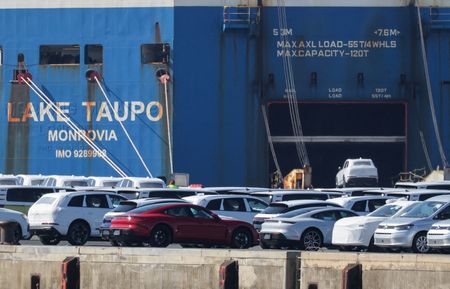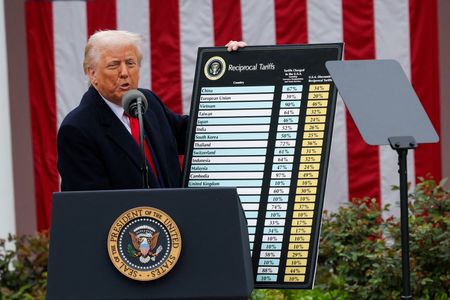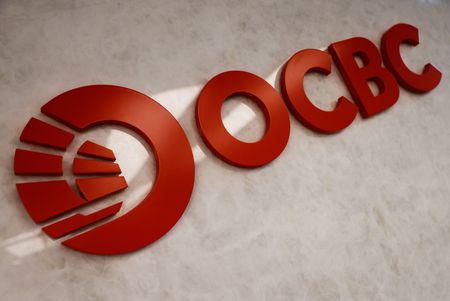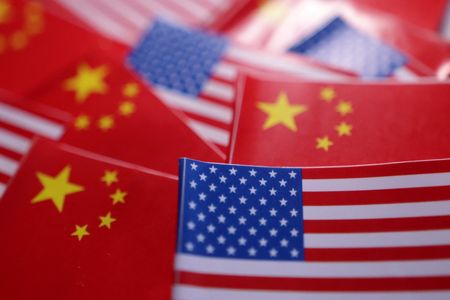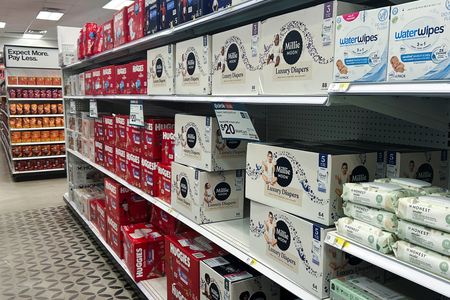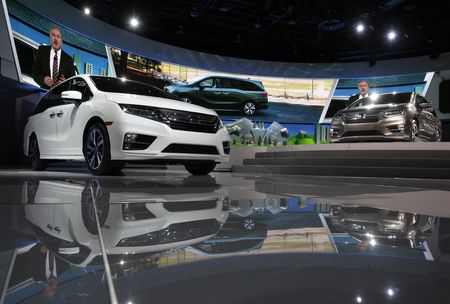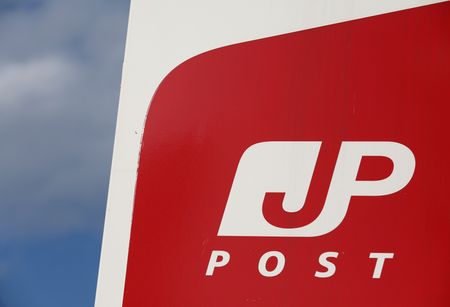By Christoph Steitz, Marie Mannes, Kalea Hall, Lisa Baertlein
FRANKFURT/STOCKHOLM/DETROIT/LOS ANGELES (Reuters) -The fallout from U.S. President Donald Trump’s trade war reverberated further through the corporate world on Tuesday, as delivery giant UPS said it would cut 20,000 jobs to lower costs, while General Motors pulled its outlook and pushed its investor call to Thursday pending possible changes to trade policy.
The Detroit automaker, along with American ketchup maker Kraft Heinz, Swedish appliances maker Electrolux, and airline JetBlue Airways and other blue-chip names, on Tuesday joined the diverse list of companies that have pulled forecasts for 2025 or slashed outlooks, further evidence that Trump’s see-sawing trade policy is taking a major toll on companies’ ability to plan beyond the immediate term.
About 40 companies worldwide have pulled or lowered their forward guidance in the first two weeks of the first-quarter earnings season, a Reuters analysis showed.
“Every single prediction has been proved to be wrong,” Electrolux CEO Yannick Fierling told Reuters. “I’m surprised if people are claiming they have a view where tariffs are going.”
The White House has retreated several times on the sweeping tariffs Trump instituted in early April that unleashed a wave of selling across stocks worldwide and prompted investors to reduce holdings in the normally safe-haven U.S. dollar and Treasury debt. The broad-market S&P 500 is down 7% since Trump returned to office.
On Tuesday, Treasury Secretary Scott Bessent tried to reassure consumers and investors by noting Trump would announce cuts to planned auto parts tariffs to avoid double levies on parts and the materials to make them, following considerable pressure from U.S. automakers. He also touted the administration’s plans to cut taxes and reduce regulation to boost confidence.
However, executives are increasingly sounding the alarm over how Trump’s trade policies have sapped consumer and business sentiment, raising fears that even if tariffs are rolled back substantially, the damage done in the last few months will not be easily reversed.
Trump marks 100 days in office on Wednesday, and he may be greeted with a contraction in first quarter U.S. gross domestic product, the broadest measure of the country’s economic health. As of Tuesday morning, GDP was expected to come in at a weak 0.3%, according to a Reuters poll, but after another round of lackluster economic figures, prominent economists including Goldman Sachs, Morgan Stanley and JPMorgan lowered their expectations for the quarter to -0.8%, -1.4%, and -1.75%, respectively.
Job openings dropped sharply in March, while the Conference Board’s measure of consumer confidence in April fell to its lowest level since COVID-era readings as inflation expectations surged. The trade deficit spiked to a new record on another rise in imports as people bought goods to get ahead of tariffs.
“The world has not been faced with such enormous potential impacts to trade in more than 100 years,” UPS CEO Carol Tome said on the company’s earnings call.
While the White House says it is in negotiations with many nations and has rolled back or paused some levies, sky-high tariffs on China and other levies on metals and other materials are still in place, and additional industry-specific tariffs on trucking, pharmaceuticals and semiconductors are still being threatened.
ABANDONING OUTLOOKS
GM and Volvo Cars abandoned their outlooks on Tuesday, joining most U.S. airlines, computer gadget maker Logitech and drinks giant Diageo.
GM delayed its earnings call that had been scheduled for Tuesday morning to Thursday due to the expected change in trade policy.
“We’re telling folks not to rely on the prior guidance, and we’ll update when we have more information around tariffs,” GM Chief Financial Officer Paul Jacobson told reporters after it pulled its forecast for the year.
German sportscar maker Porsche AG said it had suffered a hit of at least 100 million euros ($114 million) across April and May as a result of U.S. import tariffs.
Shares in Volvo Cars fell 9% after it said it would cut spending by about $1.8 billion and restructure its U.S. operations following a tumble in first-quarter profits.
The tariffs are expected to raise U.S. car prices by thousands of dollars, reducing demand and piling pressure on an automobile industry already struggling with a slowing transition to electric vehicles.
CONSUMER WORRIES
In a sign of the tensions around trade policy, the White House reacted angrily to a report from Washington-based Punchbowl News that Amazon would detail how much shoppers are paying for items due to tariffs.
The retailing giant denied that report, though it said its team that runs its low-cost Amazon Haul store had considered listing import charges for certain products.
Adidas CEO Bjorn Gulden said that “in a normal world” without the uncertainty, the German sportswear company would have hiked its 2025 revenue and profit forecasts after strong quarterly results last week.
But “given the uncertainty around the negotiations between the U.S. and the different exporting countries, we do not know what the final tariffs will be. Therefore, we cannot make any ‘final’ decisions on what to do”, he said.
Among other consumer-facing names, Kraft Heinz trimmed its annual forecast, hotel operator Hilton cut its 2025 revenue growth outlook and Porsche and Electrolux cut their full-year outlooks.
“History tells us that prolonged uncertainty will feed into consumers’ purchasing decisions,” Danish brewer Carlsberg’s CEO Jacob Aarup-Andersen told Reuters.
($1 = 0.8785 euros)
(Reporting by Christoph Steitz in Frankfurt, Marie Mannes in Stockholm, Helen Reid in London, Paolo Laudani and Linda Pasquini in Gdansk, Kalea Hall in Detroit, Lisa Baertlein in Los Angeles, Rajesh Kumar Singh in Chicago; Additional reporting by Shivansh Tiwary, Sameer Manekar and Abhinav Parmar in Bengaluru and Jeff Mason and David Shepardson in Washington; Writing by Josephine Mason, Arpan Varghese and David Gaffen; Editing by Catherine Evans,Chizu Nomiyama and Marguerita Choy)

